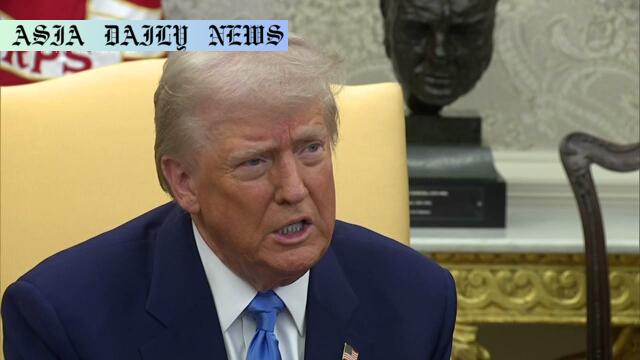Efficiency: US President Donald Trump praises Elon Musk’s email demanding federal workers to report their weekly achievements.

Introduction: The Musk-Trump Efficiency Initiative
In a bold move that has stirred significant discussion, Elon Musk, head of the Department of Government Efficiency, issued an email mandating federal workers provide a five-point summary of their weekly achievements. This directive, which came with a tight deadline, has drawn both praise and skepticism, with US President Donald Trump calling it a ‘great idea.’
Trump’s Support for a Bold Approach
President Trump’s endorsement of Musk’s initiative underscores his administration’s ongoing focus on combating inefficiency and fraud within the federal government. Trump suggested that workers who failed to respond to Musk’s email might not be actively engaged in their roles or could potentially be ‘phantom employees,’ implying the possibility of significant budgetary waste.
Confusion Among Federal Agencies
Despite Trump’s positive remarks, the directive has caused confusion within federal agencies. As part of their standard operating procedure, the State Department and the FBI reportedly cautioned employees about disclosing any classified or sensitive duties in their reports. This has led to mixed interpretations of whether employees are obligated to comply with Musk’s request.
Reaction from the Office of Personnel Management
The Office of Personnel Management (OPM), the federal agency overseeing government personnel policy, added to the uncertainty by informing all federal agencies that employees are not required to respond to Musk’s email. This statement has sparked a debate over whether Musk’s authority as head of Government Efficiency extends to such requests.
Potential Advantages of the Efficiency Mandate
Proponents argue that Musk’s mandate could bring long-awaited accountability to federal offices. By requiring employees to outline their contributions, the system could help identify redundancies and inefficiencies. In cases where employees fail to provide adequate information about their work, further auditing could uncover mismanagement or fraud.
Criticism and Ethical Concerns
Critics of the initiative highlight privacy and ethical concerns. Government watchdogs and workers’ unions have raised the alarm that such a requirement could intimidate employees or deter transparency. Furthermore, critics question Musk’s right to make such demands and the sweeping nature of the policy in a complex federal structure.
Conclusion: A Divided Response
Musk’s initiative has ignited a nationwide conversation about federal efficiency. While some applaud the effort to bring accountability to government operations, others see it as overreach fraught with challenges. The coming weeks are likely to reveal how this experiment in government efficiency unfolds, especially as the White House and federal departments navigate the fallout from Musk’s controversial email.
Commentary
A Paradigm Shift in Federal Accountability
Elon Musk’s recent initiative to demand transparency and accountability from federal workers represents a radical departure from traditional government practices. In a bureaucracy often criticized for its lack of efficiency and responsiveness, Musk’s approach reflects a private-sector mindset applied to public service. While the intent to eliminate waste and fraud is commendable, the approach raises significant questions about implementation and oversight.
Balancing Innovation with Sensitivity
On one hand, Musk’s five-point summary requirement has the potential to revolutionize how government accountability is perceived. Tying employees’ output to measurable productivity could redefine organizational effectiveness. However, the line between efficiency and overreach is thin, especially in government work involving sensitive or classified information.
Navigating Controversy and Legal Uncertainty
What Musk’s directive misses is the necessity of transparency in design and execution. Many federal employees feel unsure about the bounds of their compliance, especially amidst conflicting guidance from agencies like the State Department and the Office of Personnel Management. By failing to provide clarity, Musk risks undermining the credibility of this initiative.
Looking Ahead
While the initiative has garnered substantial public attention and support from President Trump, its long-term success will depend on aligning it with established protocols and respecting the unique challenges of federal operations. Accountability and efficiency are important goals, but achieving them requires thoughtful planning and collaboration across all levels of government.


